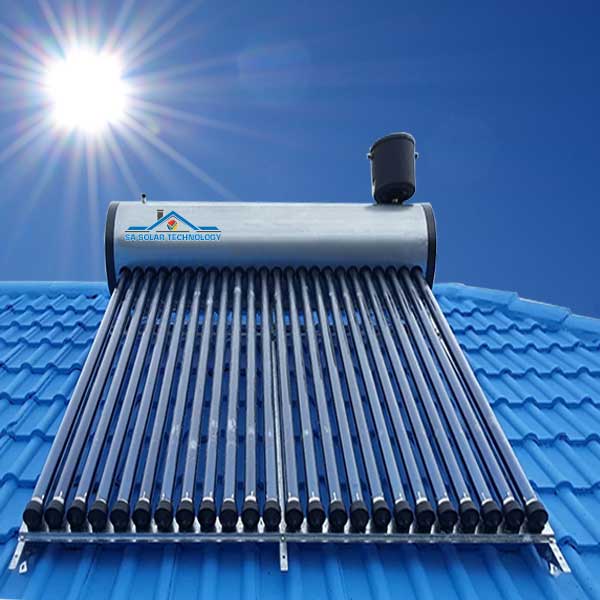Finding the best way to heat your water for your home is important for both energy savings and long-term reliability. Solar geysers and heat pumps have become increasingly popular as options for sustainable water heating. In this article, we will explore how to choose solar geysers and heat pumps for your home.

What is a Solar Geyser?
A solar geyser use the power of the sun to heat water. Solar water heaters typically consist of tubes and a water reservoir. The collectors absorb solar energy, which is then used to heat the water. Using solar geysers reduces reliance on traditional electricity-based systems.
How Solar Geysers Save Energy
One of the main benefits of solar water heaters is their ability to save energy. Because they use solar energy, you can significantly cut your monthly electricity bills. Along with the cost savings, solar geysers also help reduce your carbon footprint.
These systems work best in sunny regions. However, on overcast days, many systems have electrical backup systems to ensure you have hot water when needed.
Who Should Use a Solar Geyser?
Solar geysers works well for people who want to reduce their energy bills. If your home receives a lot of sunlight can get the most value from this system.
Of course, you need to factor in the installation expenses of a solar water heater. Although solar geysers save money over time, the initial setup can be significant. You may be eligible for rebates to help reduce the installation expenses.
Understanding Heat Pumps
Heat pump systems work by transferring heat from the surrounding air to heat water. Rather than creating heat, they use a refrigeration cycle heat pumps Johannesburg. This makes them a cost-effective solution, due to their energy-saving design compared to conventional heating systems.
Why Choose a Heat Pump?
One of the biggest reasons to choose a heat pump system is its ability to save energy. Heat pumps can reduce energy consumption by up to 60-70% compared to standard electric water heaters. The result is lower monthly bills on electricity bills.
Not only do heat pumps save energy, they have a smaller environmental impact. Since they harness heat from the environment, they are a greener option compared to gas or electric heaters.
When to Choose a Heat Pump
Using a heat pump is a great choice who live in moderate climates. They perform well in regions with moderate temperatures, but they may require additional heating support in very cold regions.
Similar to solar geysers, heat pump systems require a larger initial investment. The reduction in energy bills help you recover the initial cost over time.
Heat Pumps vs Solar Geysers
Both solar geysers and heat pumps are energy-efficient solutions for eco-friendly water heating. However, each system has its strengths and weaknesses. Consider the following comparison:
Energy Efficiency: Solar geysers rely on sunlight, while heat pumps require some electricity but still save energy.
Cost: Solar geysers may be more expensive to install, but they offer substantial savings after installation. Heat pumps generally cost less to install than solar geysers.
Best Climate: You’ll get the most out of solar geysers in sunny climates, while heat pumps are ideal for areas with mild temperatures.
Final Thoughts
Choosing between solar geysers and heat pumps are excellent solutions for people looking to reduce energy consumption. If you live in a sunny area and want to maximize eco-friendliness. For those in areas with less sunshine, heat pumps can still deliver great energy efficiency.
Whichever system you choose, you’ll help reduce energy consumption and contribute to a greener planet.
Leave a Reply